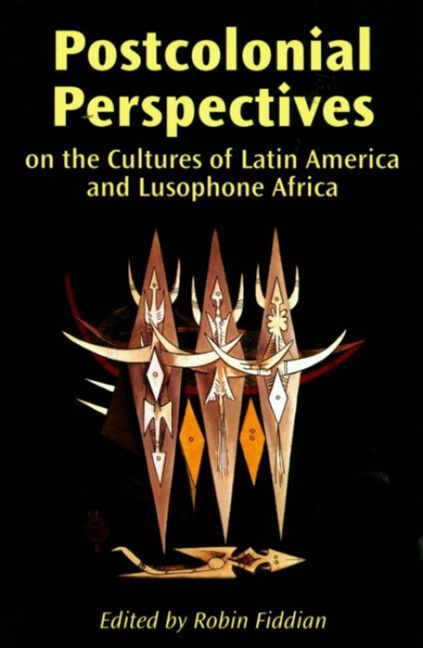Book contents
- Frontmatter
- Contents
- Preface
- Locating the Object, Mapping the Field: the Place of the Cultures of Latin America and Lusophone Africa in Postcolonial Studies
- Chapter One On Metropolitan Readings of Latin American Cultures: Ethical Questions of Postcolonial Critical Practice
- Chapter Two Ig/noble Barbarians: Revisiting Latin American Modernisms
- Chapter Three José Carlos Mariátegui: Culture and the Nation
- Chapter Four Doing Time in Peru: the Poetics of Multitemporality as Method for Cultural History
- Chapter Five America, Americanism and the Third World in the Work of Leopoldo Zea
- Chapter Six Fernando Ortiz's Transculturation: the Postcolonial Intellectual and the Politics of Cultural Representation
- Chapter Seven Caribbean Masks: Frantz Fanon and Alejo Carpentier
- Chapter Eight Colonial Crosswords: (In)voicing the Gap in Mia Couto
- Index
Chapter Three - José Carlos Mariátegui: Culture and the Nation
- Frontmatter
- Contents
- Preface
- Locating the Object, Mapping the Field: the Place of the Cultures of Latin America and Lusophone Africa in Postcolonial Studies
- Chapter One On Metropolitan Readings of Latin American Cultures: Ethical Questions of Postcolonial Critical Practice
- Chapter Two Ig/noble Barbarians: Revisiting Latin American Modernisms
- Chapter Three José Carlos Mariátegui: Culture and the Nation
- Chapter Four Doing Time in Peru: the Poetics of Multitemporality as Method for Cultural History
- Chapter Five America, Americanism and the Third World in the Work of Leopoldo Zea
- Chapter Six Fernando Ortiz's Transculturation: the Postcolonial Intellectual and the Politics of Cultural Representation
- Chapter Seven Caribbean Masks: Frantz Fanon and Alejo Carpentier
- Chapter Eight Colonial Crosswords: (In)voicing the Gap in Mia Couto
- Index
Summary
Discussing Mariátegui's critical works in the context of a postcolonial approach to Spanish American and Lusophone cultures calls for a note of clarification. While the writings of the Peruvian undoubtedly constitute a major contribution to the dismantling of colonial perspectives within reflections on literature and culture in Latin America, I am nevertheless somewhat sceptical about the legitimacy—and indeed the productivity—of attempts to assimilate Mariátegui into postcolonial studies. Amongst my concerns vis-àvis this type of reading strategy are the danger of dehistoricization of Latin American discourses, the dilution of their particular traits and multiplicity of meanings, and the consequent loss of sight of local traditions of thought, as well as the silencing of local debates. What worries me is the tendency to homogenize critiques of colonialism and modernity that have emerged from within very distinct colonial histories and societies. I am not denying the usefulness of locating affinities between the objectives of postcolonialism on the one hand, and those of either the critical thought of the Latin American Left, or of the region's cultural criticism, on the other, but I am very wary of the effects of constructing new universalist theoretical approaches. Such a construction and the imposition of such approaches upon Latin America bring with them, after all, the risk of erasing the very distinctiveness of those histories and societies, of possibly establishing single agendas, sometimes at the expense of local ones, and even of undermining the relevance of the thinkers of the region to contemporary debates on Latin American culture. In the particular case of Mariátegui, whom I would place within this tradition of Latin American cultural criticism, I have a fear of new simplifications of the multifaceted nature of his critical writings, all too reminiscent of the reductionism to which they were subjected by a rather dominant orthodox Marxist tendency amongst his critics, a reductionism that will be examined in this essay.
There is an abundance of commentary on Mariátegui's work, yet relatively little attention has been paid to his aesthetic and cultural reflections.
- Type
- Chapter
- Information
- Publisher: Liverpool University PressPrint publication year: 2000



